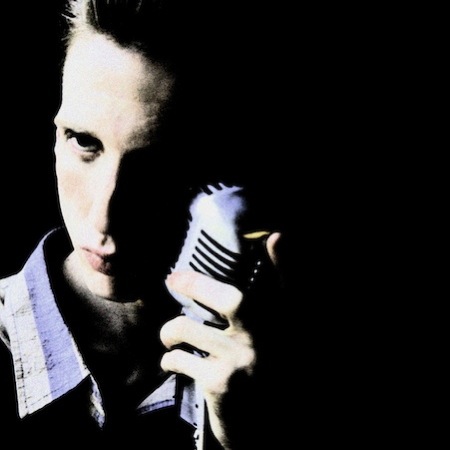I’ve lost count of the number of times that Bradford Cox has flipped back and forth between Atlas Sound and Deerhunter. Suffice to say, it happens quite often. Parallax is his third album without his band since they broke out in 2008. The problem with Atlas Sound is that the quality of the music has always seemed a bit too high to warrant being pigeonholed as just a side project. I have come to envision this term as an outlet for any musician who wants to venture outside of the stylistic walls established by their bands, and generate somewhat lesser output in the process. Atlas Sound doesn’t fit in this box, partially because of Cox’s love for that fuzzy aesthetic, and partially because his music occasionally reaches the same dizzy highs that he achieves with Deerhunter. Parallax is musically lean, so while it may sometimes sound like a solo project, it sure doesn’t feel like one.
Taken as a whole, Parallax flows better than Cox’s past albums. It still dips its toes in some of the same pools, and the shades, tones and sounds that we’ve come to expect are just as reliable as ever. Instead of building a world here, Cox digs a hole. He plays thematic twister, transitioning from esoteric (“How many fantasies were interrupted by / 100 galaxies that were drifting by”), to pious (“Dip me in the water / Baptize me”), to reflexive (“I made lots and lots of friends”) within his own cerebral playground. Even though he is looking inward, he doesn’t feel as anonymous as he has in the past.
Cox’s previous fondness for shoegaze and ambient drones are a bit less apparent here. His voice is louder and clearer than ever, piercing like that oblique stare on the album’s cover. This refined lucidity bleeds into his words as well, and his characteristically autobiographical, stream-of-consciousness reveries hit with a new found sense of precision. On the title track he posits: “Your pain / Is probably equal.” It’s a simple statement, but when it’s paired with vocal hook this transient, it’ll still be circling inside your brain by the time “Modern Aquatic Nightsongs” fades in.
Despite these minor shifts, it’s not a stretch to imagine Cox as the mind behind them. In addition to the weirder experiments like “Flagstaff,” there are playful retropop chimes (“Mona Lisa”), looping, fantastical jumbles (“Te Amo”), and spacious ballads (“Terra Incognita”). Parallax is a spectacle of ideas. Some sputter off into the grey, some fester, and some need to be heard more than once before you can formulate an opinion on them.
Cox’s health issues and odd childhood undoubtedly influenced his decision to blur his music earlier in his career. As his catalogue continues to accumulate faster than just about every other artist out there, you can feel him growing more confident in himself and the ideas he bases his music on. Parallax can’t help but feel like a win for this cause because it symbolizes growth more than out-and-out excellence. Cox is still an awkward introvert, but he’s learning to infuse his songs with a spirit that’s distinctly his own.

